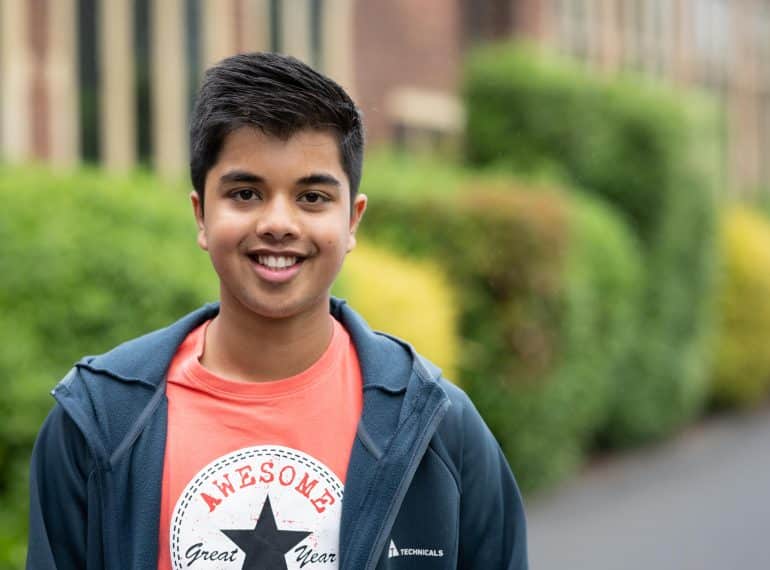
Mukund Soni (starting Year 12) took first prize in the national Young Financial Journalist Competition with his impressive analysis of the decline of cash.
His carefully researched essay beat hundreds of other entries to take the top place in the 14-15 age group, drawing fulsome plaudits from the judges.
Mukund won £150 for himself as well as ten free places for QE pupils on the London Institute of Banking & Finance’s Lessons in Financial Education programme. The competition was run by the LIBF in collaboration with the Financial Times.
In his appraisal, FT columnist and TV mathematics expert Bobby Seagull wrote: “Excellent article! With a clear, nuanced view about how society might transition to cashless and a judicious use of data to back up key points! Sometimes, younger writers try to convince readers through an over reliance on stats, but this didn’t do that.”
His fellow judge, Claer Barrett, an award-winning journalist who has been the Editor of FT Money since 2015 and Consumer Editor at the FT, was equally impressed: “A fantastically well-researched piece on the decline of cash, which drew on international examples – and some from ancient history – to hammer the main points home.
“Highlighting the increased costs that small businesses face from using card payment and contactless machines instead of cash was particularly insightful. As well as what happens with digital payments if your phone runs out of battery!”
An abridged version of Mukund’s 830-word essay was published in the FT and he appeared in a LIBF podcast with his Economics teacher, Gus Ornelas.
Mukund, who this month was awarded a level 9 grade in his Economics GCSE, as well as eight other grade 9s and one grade 8, explained how he had benefited from taking part in the competition: “It was interesting to look at the topic in more detail, and I gained a much greater understanding of the benefits of a cashless society. I also think some of my other skills – like researching, finding good sources, referencing them and writing an extended piece – they increased quite a lot!”
Congratulating him, Dr Ornelas said: “This was a skilfully executed piece of writing in which Mukund not only investigated the reasons for the decreasing use of cash, but also highlighted the considerable problems that a cashless society presents.”

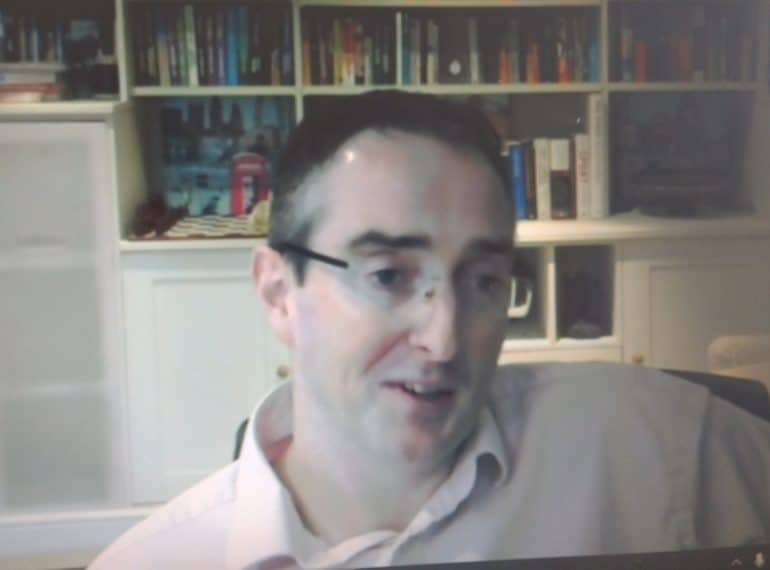
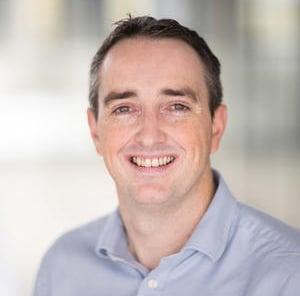 The speaker, Michael McMahon, Professor of Economics at the University of Oxford and Senior Research Fellow at St Hugh’s College, is a leading expert on communications in central banks. His interests also lie in monetary economics, fiscal policy, business cycles, and applied econometrics. He worked at the Bank of England for many years and now serves as a member of the Irish Fiscal Advisory Council.
The speaker, Michael McMahon, Professor of Economics at the University of Oxford and Senior Research Fellow at St Hugh’s College, is a leading expert on communications in central banks. His interests also lie in monetary economics, fiscal policy, business cycles, and applied econometrics. He worked at the Bank of England for many years and now serves as a member of the Irish Fiscal Advisory Council.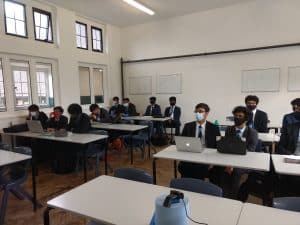 “They were particularly attentive to the portions of Professor McMahon’s lecture in which he laid emphasis on how the current economic situation will impact young people as they are thinking about their job prospects for the future.
“They were particularly attentive to the portions of Professor McMahon’s lecture in which he laid emphasis on how the current economic situation will impact young people as they are thinking about their job prospects for the future.
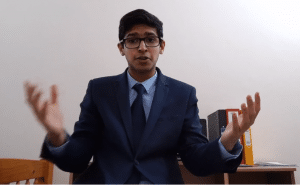 Abir Mohammed, Dhruv Syam and Ansh Jassra put together a polished three-minute film featuring footage from around the world on the competition theme of The changing workplace: same spaces, new realities. The 2020 competition, entitled Bank Camera, Action, challenged entrants to explore the effects of the coronavirus pandemic on the way we work, on jobs and on the economy.
Abir Mohammed, Dhruv Syam and Ansh Jassra put together a polished three-minute film featuring footage from around the world on the competition theme of The changing workplace: same spaces, new realities. The 2020 competition, entitled Bank Camera, Action, challenged entrants to explore the effects of the coronavirus pandemic on the way we work, on jobs and on the economy. QE teacher of Economics Krishna Shah said: “I am extremely proud of the three of them and delighted that all their hard work in putting the film together has been rewarded.”
QE teacher of Economics Krishna Shah said: “I am extremely proud of the three of them and delighted that all their hard work in putting the film together has been rewarded.”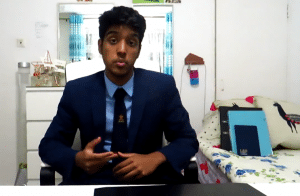 It considered the environmental benefits of reduced levels of commuting and outlined possible technological solutions to the difficulties in maintaining work-life balance that working from home often entails, such as using separate electronic devices for work and personal life and screen-time blocking apps.
It considered the environmental benefits of reduced levels of commuting and outlined possible technological solutions to the difficulties in maintaining work-life balance that working from home often entails, such as using separate electronic devices for work and personal life and screen-time blocking apps. “Ultimately, the question is not whether remote working is here to stay, but to what extent.
“Ultimately, the question is not whether remote working is here to stay, but to what extent.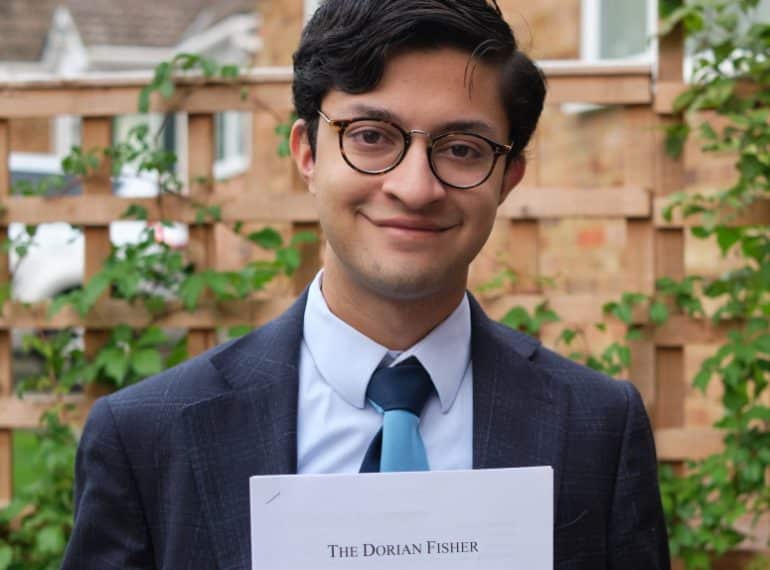
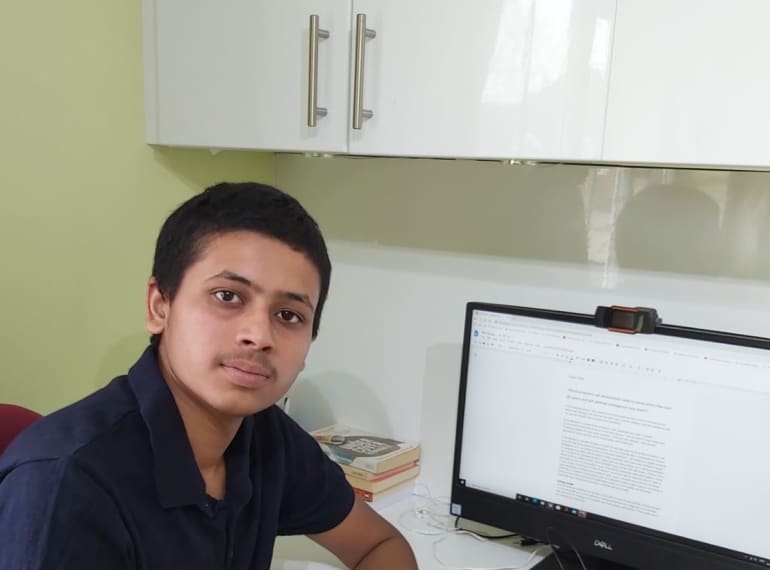
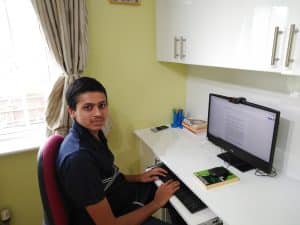 His 1,500-word composition won him the Economics section – and a £1,000 prize – in the annual New College of the Humanities Essay Competition.
His 1,500-word composition won him the Economics section – and a £1,000 prize – in the annual New College of the Humanities Essay Competition.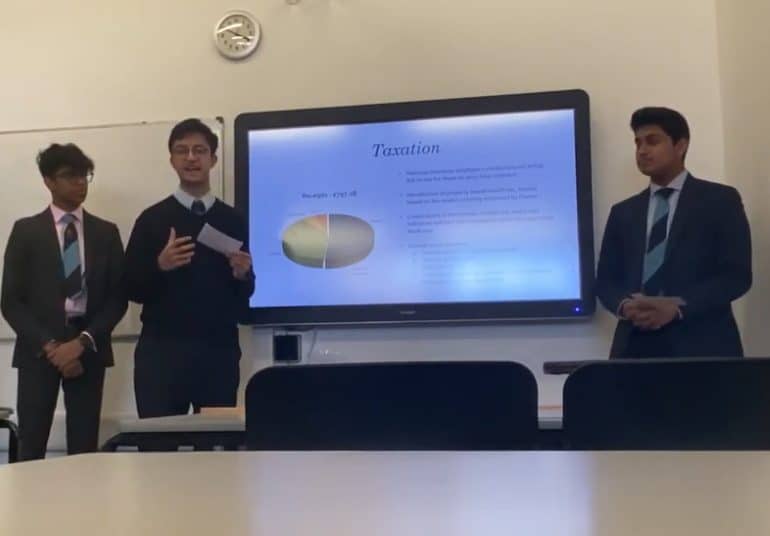
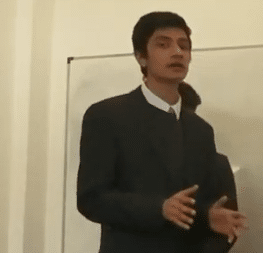 They talked about the impact that the Covid-19 virus has had on the British and world economies, and reflected on how they had had to be responsive in their thinking: “We have had to significantly adapt our original budget,” said Thapan, while Tanishq spoke of the need to supply long-term, sustainable, investment for the NHS in addition to a short-term aid package.
They talked about the impact that the Covid-19 virus has had on the British and world economies, and reflected on how they had had to be responsive in their thinking: “We have had to significantly adapt our original budget,” said Thapan, while Tanishq spoke of the need to supply long-term, sustainable, investment for the NHS in addition to a short-term aid package.